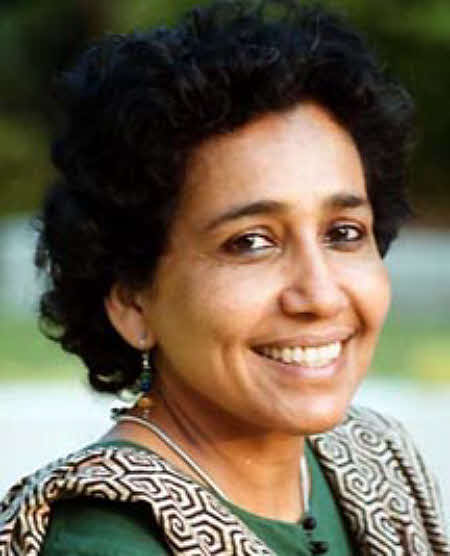Kalpana Sharma is an independent journalist and columnist whose columns appear regularly in The Hindu’s Sunday Magazine, on The Hoot and Infochange India. Her columns are about developmental issues, women, the media and the environment, among others. Kalpana Sharma is also the author of ‘Rediscovering Dharavi: Stories from Asia’s largest slum’ published by Penguin in 2000. In this interview, she gets talking about the Indian society’s attitude towards girl children and social issues such as female foeticide. Excerpts.
It is a well-known fact that traditionally, in many Indian families, a boy child has been preferred over a girl child. However, would you say that the Indian society’s attitude (in urban and rural India) towards bringing up and educating girl children has improved in these times when the country is demonstrating commendable progress in many spheres?
I think there has been some change. Part of this is the result of special programmes and incentives to encourage poor families to send their daughters to school. As a result, there has been a noticeable increase in enrollment of girls. But the problem is not with the poor. It is with those who have enough – the middle class, the upwardly mobile – who still adhere to the system of giving and taking dowries, despite the law, who still prefer sons as they do not want property divided, and who can afford to use technology to prevent the birth of girls. So even though there has been some change, I don’t think the basic attitude of preferring sons to daughters has changed.
Talking of girl children, female foeticide has been a grave social concern in India. Government measures such as the ‘cradle baby’ scheme or the ban on sex detection are indeed encouraging signs. Do you feel that these steps have made a difference?
As with other measures, all these steps can make a difference if properly implemented. For instance, one bureaucrat simply ensured that all sonography machines were registered. By doing this, he was able to check illegal sonographies, and also put pressure on the registered labs so that they did not carry out sex selection. Punitive measures, if implemented, can be a very good deterrence. The “cradle baby” scheme has helped where there is female infanticide. But as with the earlier issue raised in the first question, laws, vigilant implementation, etc., must be accompanied by a change in attitude. Until that happens, it is very difficult to prevent people from using sex selection techniques if they are determined to prevent the birth of girls.
Would there ever come a time when girl children (and ultimately women) are treated on par with boy children (and ultimately men)?
I am sure it can happen. After all, such problems existed even in Western societies, where men and women now have much greater equality. So we must not believe that it will never happen. But if a group of people, or a gender, has got used to holding on to power and control for generations, they will not relinquish it, or share it, too easily. So it will be a struggle, and for a long time to come.
Finally, do you feel that the mainstream media is doing enough to bring social issues concerning girl children to light?
The simple answer is “No”. Once in a while, there are some articles, some exposes, some effort made. But on the whole, they are not. The unconscious bias is so great, that mainstream does not even recognise which way it is tilting. For instance, if the simple step of ensuring that women’s voices were heard on every major event was taken by all the major channels, it would soon become absolutely normal to hear women’s voices on a range of issues ranging from defence to sports to health. There are women who can speak with authority on all these subjects. But the tendency in the media is to stick to the obvious — and the obvious are all men. The girl child issue is part of the larger issue of women’s rights and human rights. It cannot be isolated and treated separately.
Picture by Bhagat Macca under CC license
